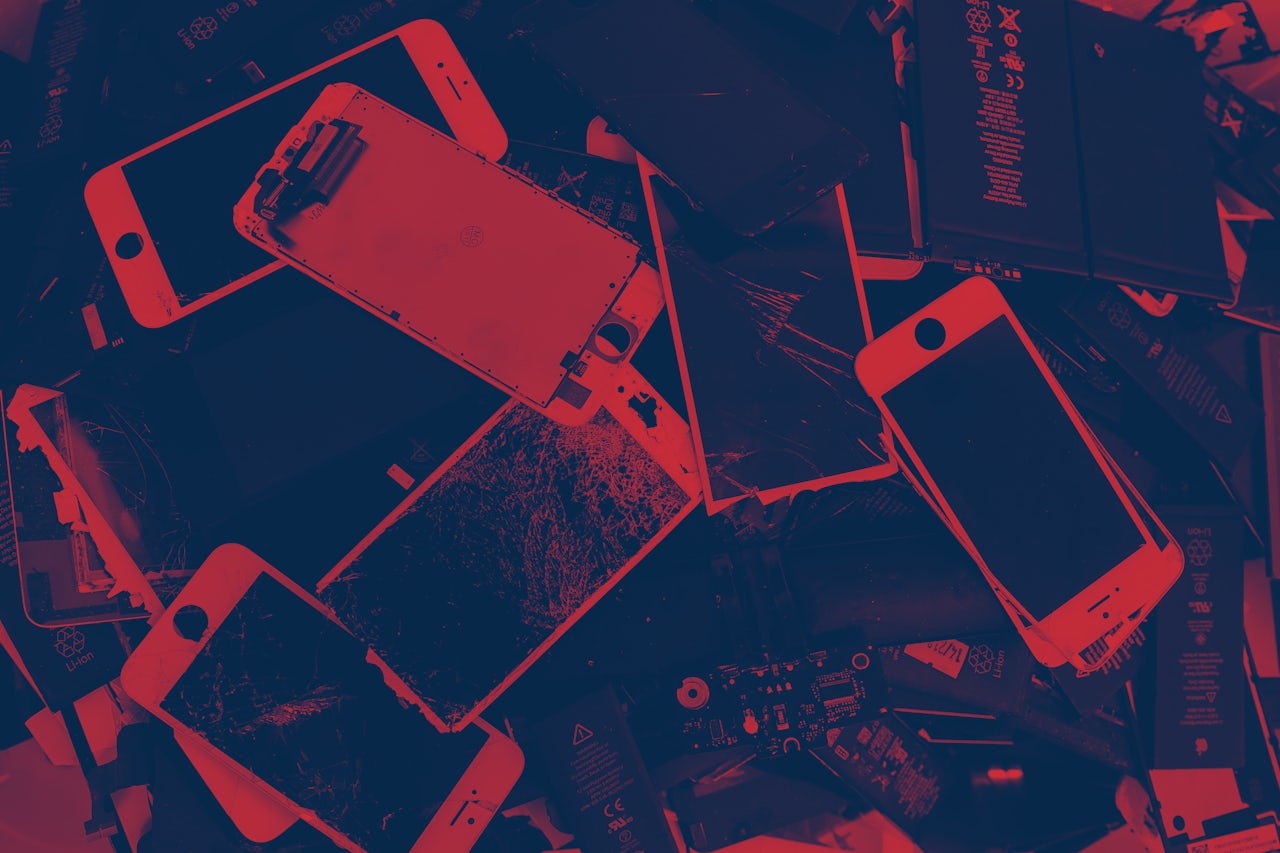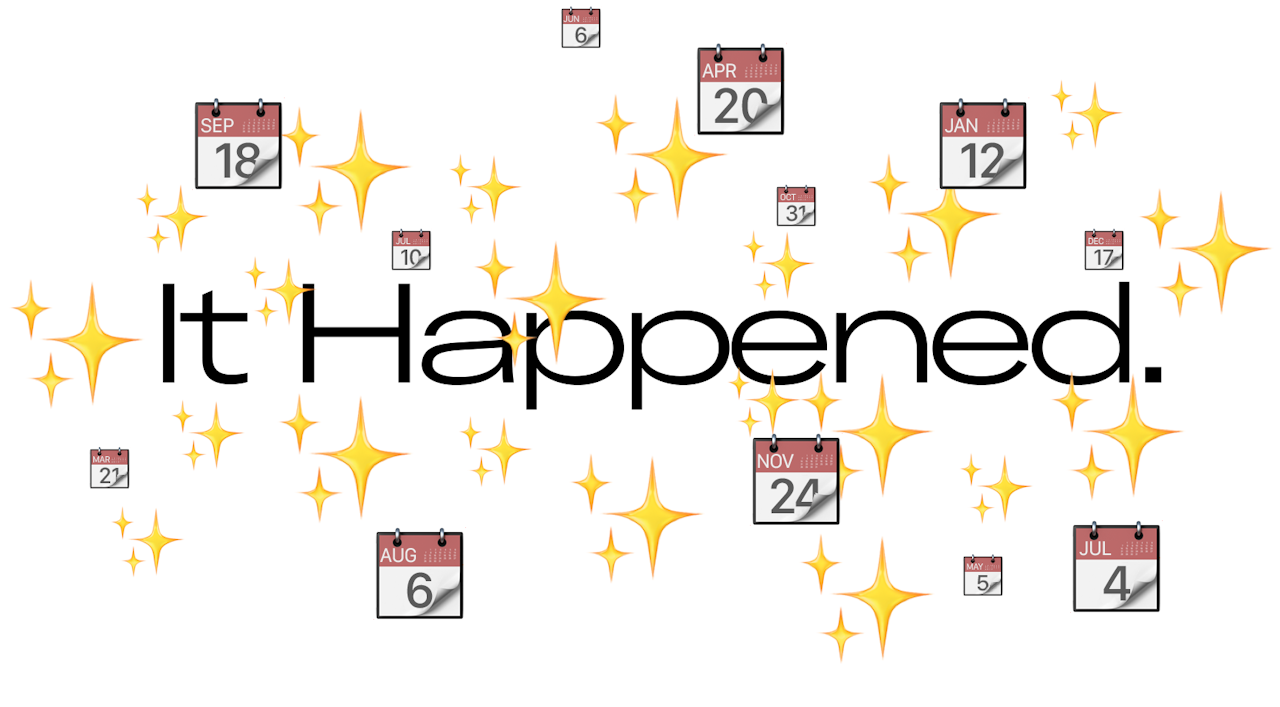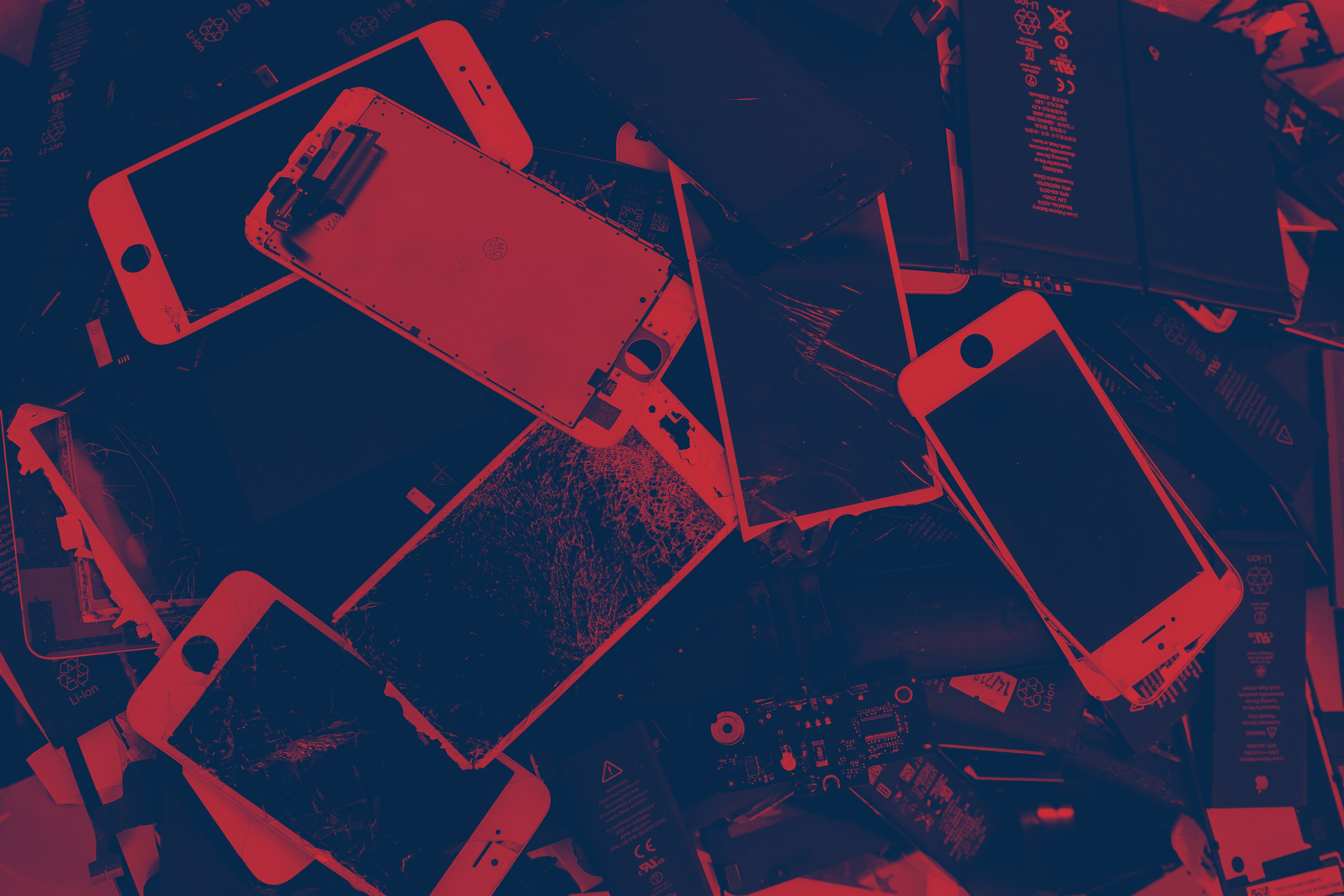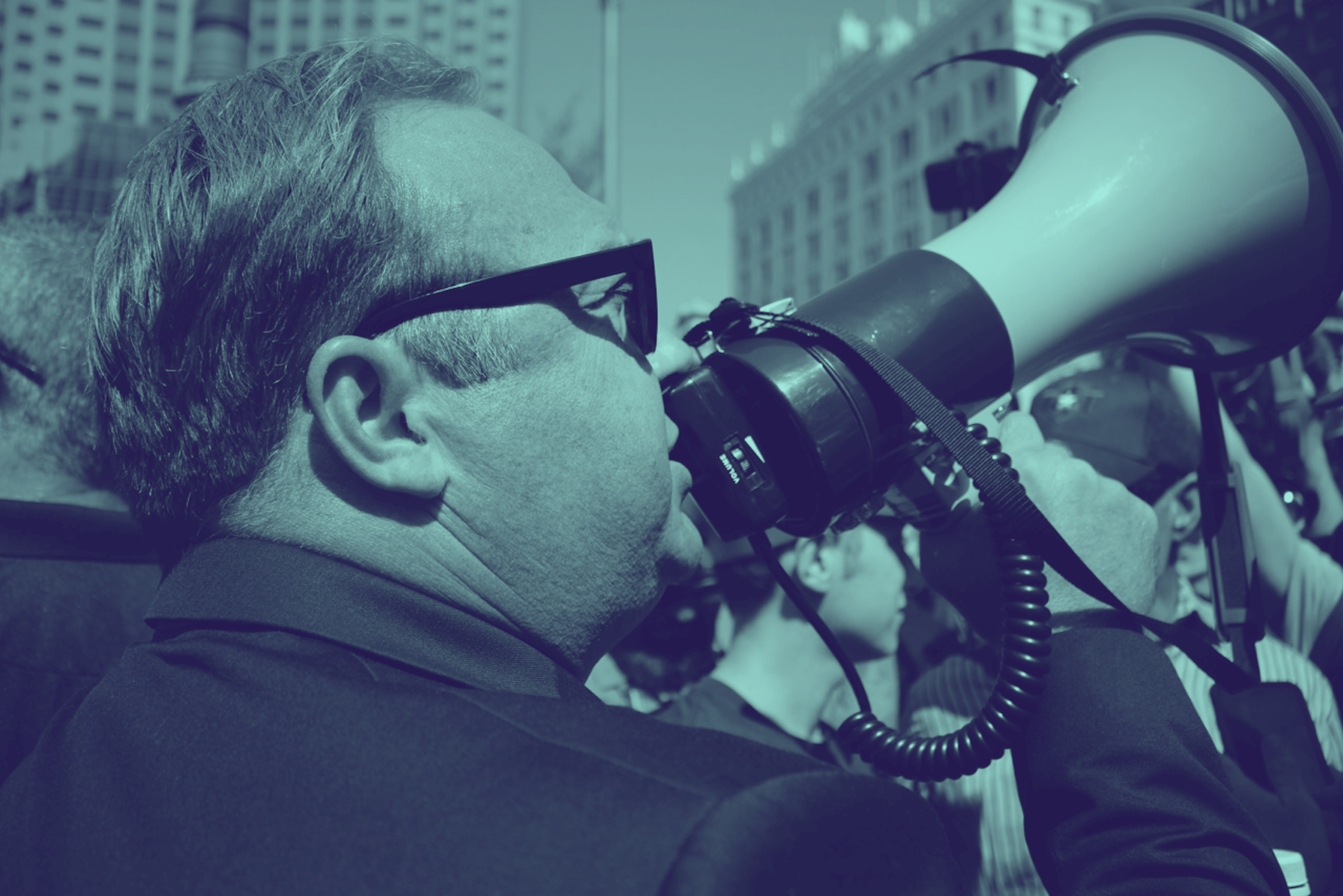At the very end of July, an event popped up on the horizon: Apple was set to become the first trillion-dollar company in U.S. history. Standard Oil, the Ford Motor Company, U.S. Steel — companies like these, integral to American commerce, had never approached the mark. Instead, it would be a corporation responsible for profoundly reshaping the way Americans interact with each other, a development as meaningful as the discovery of oil or automobiles.
What does it mean for a company like Apple to become worth one trillion dollars, more than any American business ever? While Apple has tentacles reaching into an increasing number of industries — music, cloud storage, media (including the likely acquisition of old legacy media properties) — its hardware business remains its cornerstone. Even if its phones and laptops are not the prime money makers, they are the mechanism that makes all of the lock-in Apple needs to support the rest of its businesses. If you have an iPhone or MacBook, you probably use Apple Music, iCloud Photos, and maybe even Apple News, because they are easier and they keep showing up and takes time and attention to figure out anything else.
Apple’s valuation said more about the state of the economy and business, particularly since its valuation has fluctuated and receded since the company hit its peak value. But I think it’s meaningful that Apple got there before the other four or five companies currently terrorizing American consumers.
Not long after Apple’s historical breakthrough, Amazon moved in fast toward the same trillion-dollar valuation. The two companies are at two ends of a tech-dominance spectrum: Apple is mostly hardware with services tacked on from every angle; Amazon is mostly services (Prime, Kindle, PrimePantry, Whole Foods, and now PrimeWardrobe, ugh) onto which it’s desperately trying to tack on hardware (Echo devices, PrimeNow buttons, AmazonBasics electronics that are enabled with Alexa, not limited to but including microwaves?).
They’re far from the only tech companies trying to play both sides of this fence. Facebook recently launched its Portal device, a transparently dystopian product whose success depends on trust that Facebook has not even remotely earned. Google has been trying to play to catch up to Apple’s hardware game ever since the early days of iOS and Android, but suffers from a hardware commitmentphobia that feels uncharacteristic of a company of this size and power. Tablets and phones and other devices are announced and then dropped or discontinued; remember the Nexus Q? (Nobody remembers the Q.)
What Apple has created — and the rest of these companies have not, despite their efforts — is the key to its success, though we hate to admit it: the walled garden. Apple unilaterally controls the devices and controls what goes on them, which means not only that many things don’t make it in, but that the company can rule with an iron fist over what stays. A recent example was the ban of adult content on Tumblr after Apple removed its app from the App Store. (This was also Tumblr’s fault for not having better control over its illegal content but, nonetheless, such a platform-shaking development wouldn’t have happened without Apple exercising its control.)
What Apple has created — and the rest of these companies have not, despite their efforts — is the key to its success, though we hate to admit it.
What’s funny is that for all of the flack Apple has taken for building its walled garden — criticism that lunged from chiding and superior (“You’ll never achieve market dominance that way”) to enraged and condemning (‘What right do you have to prevent people from putting whatever apps and music they want on their phones?”) — it worked, and worked so well that Apple never even needed to achieve market dominance to become the nation’s most valuable company ever. Apple’s gamble was that it could not only compete against sheer volume, but that it could eclipse it.
It’s easier to believe now that it would work than hindsight, when we were coming off the back of about 20 years of overwhelming dominance by Windows computers, which was the result of one software company jockeying to make as many hardware partnerships as possible and compromising whatever it needed to in the process. As short as the history of consumer tech is, the idea that a software company had to work to capture and keep as many hardware partners it laid its hands on seemed like an undeniable truth.
But the grand irony to the walled garden is that while it’s largely paid off, becoming such a large part of the world means Apple can no longer keep it out. It’s impossible to proactively manage anything that large, but app developers have become increasingly brazen about pulling tricks on Apple’s customers and, by extension, Apple itself. Most recently, users were fooled into signing up for subscriptions and in-app purchases they didn’t want, payments of which Apple always receives a cut. This income likely didn’t play a significant part in Apple’s increased worth, but things like this taint the victory of a company that likes to think of itself as incredibly careful and ideologically pure. When you deem yourself the sole arbiter of a domain, you get burdened with all the responsibility.
As the year wore on, Apple’s valuation backslid significantly, for reasons beyond a generally sliding market. The company announced it would no longer announce individual sales figures for iPhones, Macs, and other devices, likely a response to too many recent quarters of stagnant sales. People are still buying iPhones and various types of Macs by the million, but penetration has slowed down significantly; most people who are going to buy smartphones already have them, and those people are increasingly realizing they do not need new smartphones every year, or even every two years— iPads from seven years ago still work fine.
The computers, which used to be the peerless default choice at least for people who could afford them, are now plagued with significant, intractable issues that the company refuses to fully acknowledge. Almost every iPhone XS and XR review suggested that there was no real reason to buy the phones if one had bought any kind of iPhone at any point in the last three years.
When you deem yourself the sole arbiter of a domain, you get burdened with all the responsibility.
For a company that has always relied at least a little on the enduring support of its fanboys (and fanpeople), enthusiasm for its products seems to have flagged quite a bit. And that’s just the hardware: Apple Music is still not a standout, despite plenty of exclusive partnerships; the smarthome integrations are underwhelming compared with those of Amazon or Google, and Siri is a distant third place to those companies’ AI assistants. Apple News is an also-ran and Apple Maps still sucks compared to Google Maps.
Even more abstractly, the novelty of supporting what once felt like a scrappy underdog company has calcified into just another business routine. Visiting the Genius Bar to get a device fixed used to be a simple process of dealing with other human beings who were willing to benignly pretend you didn’t lightly step on your computer and crush the CD drive or drop your iPod in water; now, it’s a Kafkaesque parade of drones in blue T-shirts doing some light extortion, daring you to forego spending $350 and continue to live with your phone’s broken camera or cracked screen or shitty keyboard.
That Apple has gotten so good, or just so ruthless, at nailing its devotees for cash is so much harder to stomach when looking at this trillion-dollar valuation. And if this should’ve been obvious years ago; for many years Apple really was the best in the world at providing these products now integral to the way so many of us interact with the world. Without this unique utility, its newer transgressions seem more exhausting, and impossible to forgive.
Apple pitched the walled garden as a way to enforce quality control, to ensure its ability to keep providing great customer service, to keep making its loyal followers happy. All of those things seem to be unraveling now. But Apple sure has made a lot of money. That we might have expected anything else is, I suppose, another trick played on us.













